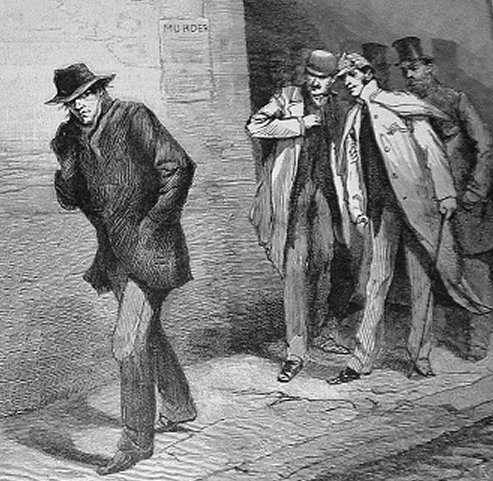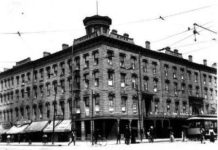 Between 1964 and 1965 six women were found dead in and around the River Thames. All of them were prostitutes, all had been strangled and all were naked, leading to their description as the ‘Nude Murders.’
Between 1964 and 1965 six women were found dead in and around the River Thames. All of them were prostitutes, all had been strangled and all were naked, leading to their description as the ‘Nude Murders.’
The first victim was 30 year-old Hannah Tailford, discovered in the river under a pier at Upper Mall close to Hammersmith Bridge on February 2, 1964. Her underwear was stuffed in her mouth.
Two months later on April 8 Irene Lockwood, 26, was found a few hundred yards upstream on the Thames foreshore.
Then on April 24, 22 year-old Helen Barthelemy was found dead in an alleyway off Swyncombe Avenue in Brentford, west London. This time there was a clue – small flecks of paint on the body.
The same pattern of paint colours was also detected on the body of Mary Fleming, who was found in a sitting position at the entrance to a garage in Berrymede Road, Acton, on July 14.
Detectives were still trying to track down motorcar spray-painting premises when Margaret McGowan, alias Frances Brown, was found dead on November 25. Her body was hidden under rubble and a dustbin lid in a Civil Defence car park in Hornton Street in Kensington.
‘Frances Brown’ had been in the newspapers the previous year when she gave evidence at the trial of osteopath Stephen Ward, one of the central figures in the Profumo affair. She had last been seen getting into a car – believed to be a Ford Zephyr or Zodiac – by fellow prostitute Kim Taylor and identikit pictures of the suspect were issued, without result.
Finally on February 16, 1965, Bridget ‘Bridie’ O’Hara was found behind a shed on the Heron Trading Estate in Acton.
Detective Chief Superintendent John Du Rose was recalled from holiday to lead the manhunt. He had policewomen dress up as prostitutes to walk the streets of Notting Hill and sent officers across west London to look for paint-spraying sites.
They didn’t have far to look – the paint pattern was found opposite a paint spray shop on the Heron estate, not far from where Bridie O’Hara’s body was found. This was where the bodies were stored before being dumped – but by who? Detectives believed he must have had some association with the estate and questioned 7,000 people from the area.
In an attempt to force the killer into exposing himself, Du Rose announced he was gradually whittling down the suspects. But the arrest never came, and the gamble appeared to have failed.

![jack-the-stripper[1]](https://coolinterestingnews.com/wp-content/uploads/2013/03/jack-the-stripper1.jpg)












